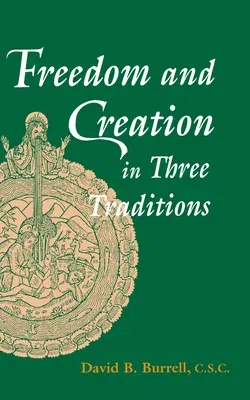With creation of the universe as its focus and a deeper understanding of
human freedom as its goal, Freedom and Creation in Three Traditions is
a work of philosophical theology that brings together Jewish, Christian,
and Muslim perspectives on the complex questions surrounding divine and
human freedom. Burrell shows how the three traditions (each avowing the
free creation of the universe by God) have developed a view of free
human actors in relation to their initial affirmations that the universe
is freely created by God. The concept of a free creation of the universe
forms a motif for all three traditions, and their respective encounters
with divine relation--in the Torah, Jesus Christ, and the
Qur'an--offer distinctive ways of articulating and assimilating the
original faith in a free creator. Burrell emphasizes the common ground
among the traditions, but does not limit his discourse to a search for a
common denominator among them. Instead, he traces the interactions among
the traditions, employing an explicitly interfaith perspective that
offers new ways to probe the vexing question of the relations between a
free creator and free creatures. The results of this comparative method
of reflection produce fresh insights into perennial human questions
about creation and freedom--questions that have constituted a major body
of theological reflection over the centuries.
Aimed at graduates and advanced undergraduates as well as laypersons
interested in interfaith dialogue and reflection, Freedom and Creation
in Three Traditions illustrates the value of tradition-directed inquiry
and clearly demonstrates the fruitfulness of comparative inquiries in
philosophical theology.


